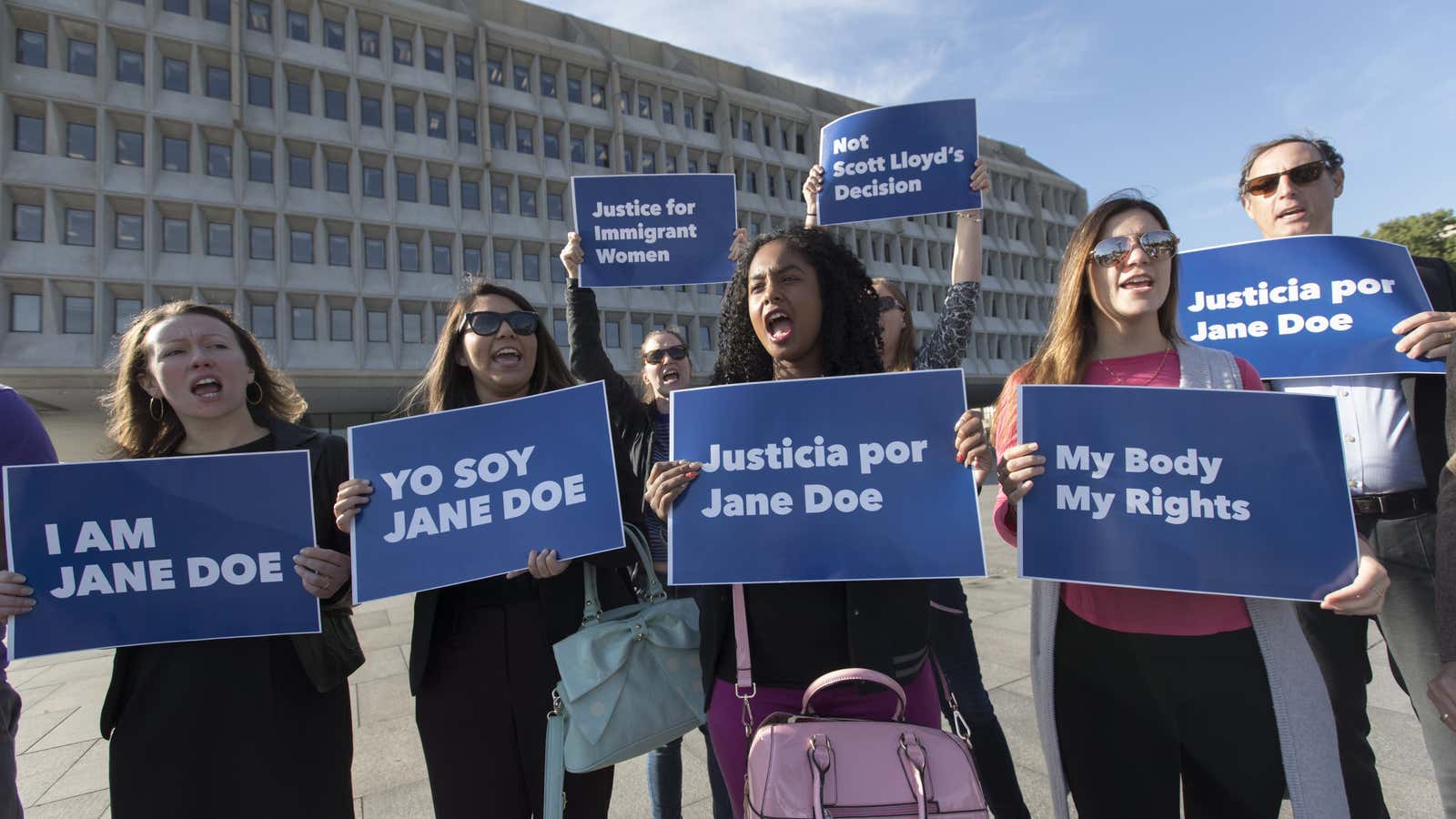Jane Doe is a child. At 17, she is considered a minor by US law and international human-rights law. Doe (the name used by the court to process her case) is also an undocumented immigrant from Central America, who is being held in a shelter for unaccompanied minors in Brownsville, Texas run by the federal Office of Refugee Resettlement (ORR).
Doe is also an undocumented immigrant and 15 weeks pregnant—and is seeking an abortion. This puts her at the intersection of several issues on which the Trump administration is trying to claw back human rights: access to reproductive health services, immigration, and the rights of undocumented minors in custody (who, unlike adults, aren’t processed for immediate deportation).
The ORR, which is run by anti-abortion activist Scott Lloyd, a Trump appointee, sent Doe for counseling at “a religious, anti-abortion crisis pregnancy center, where she was forced to have a sonogram,” according to the American Civil Liberties Union, which is representing her. The ORR said in a statement that “there is no constitutional right for a pregnant minor to illegally cross the US border and get an elective abortion while in federal custody.”
This is not true. The Roe v. Wade decision said the 14th amendment to the constitution protects the right to abortion, and legal scholars agree that the constitution’s protections (though not rights such as voting) apply equally to anyone on US territory. On Oct. 13 the district court in Washington, DC confirmed that Doe has a right to have an abortion if a guardian takes responsibility for her, as is required by Texas law.
However, the ORR has refused to release her to her lawyer, who would be the appointed guardian. ”We cannot cede our responsibility to care for minors and their babies by releasing them to ideological advocacy groups,” the ORR said. It also said Doe would be released if she was willing to go back to her country of origin.
On Oct. 18, Doe’s ACLU lawyer, Rochelle Garza, sought a restraining order to prevent the ORR holding her and make it accept Garza as guardian and sponsor. The court refused, but gave Doe 11 days to find another sponsor. By then, she will be about 17 weeks pregnant, which will mean undergoing a more complicated procedure for an abortion. Texas forbids abortions after the 20th week unless the mother’s health is in extreme danger.
That didn’t satisfy Texas attorney general Ken Paxton. ”Texas must not become a sanctuary state for abortions,” he said, in a statement that said Doe “and her unborn child” are being cared for by the government. That is a term borrowed directly from anti-abortion activists.
